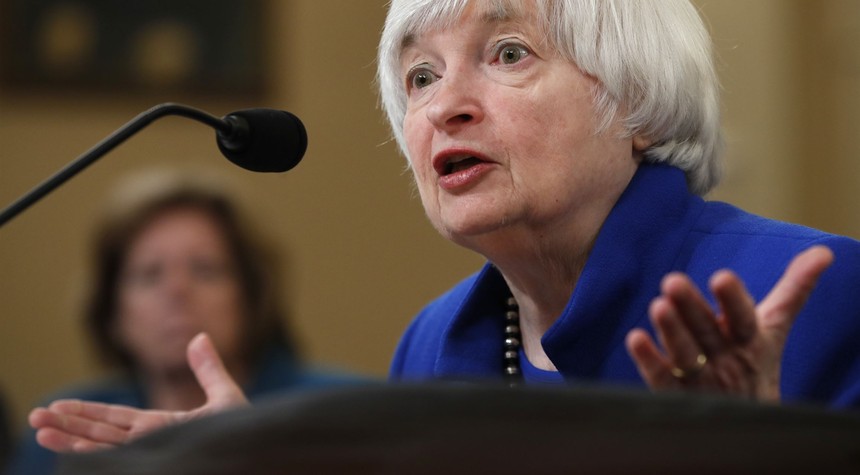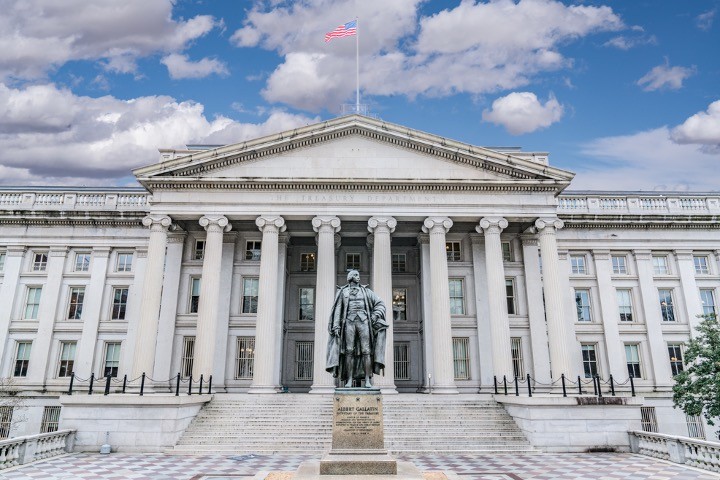
BY DANIEL GREENFIELD
SEE: https://www.frontpagemag.com/how-fema-put-equity-ahead-of-disaster-management/;
Republished below in full unedited for informational, educational, & research purposes.
“It is our lowest income communities and our communities of color that are most impacted by these extreme conditions,” Kamala Harris told the Democratic National Committee’s Women’s Leadership Forum during the recovery effort for the victims of Hurricane Ian.
“We have to address this in a way that is about giving resources based on equity.”
That is what FEMA is already doing.
FEMA uses something called the National Risk Index to calculate the risk to any area. The NRI can then be used to determine which communities should get how much funding to cope with natural disasters. Armed with an NRI evaluation, cities, counties and towns can apply for Hazard Mitigation Assistance grants. Billions in these grants have been handed out. The trouble with the NRI is that it’s less science and more sociology. And very leftist sociology at that.
The Index is made up of three components, the actual natural hazard, “community resilience” and “social vulnerability”. The last is really affirmative action for natural disasters. As FEMA puts it, social vulnerability calculates the “susceptibility of social groups to the adverse impacts of natural hazards”.Or as the old joke has it, “Earth destroyed: minorities hardest hit.”
Except with FEMA, it’s not a joke, it’s policy.
“Black and African American communities often suffer disproportionate impacts from disasters,” FEMA Administrator Deanne Criswell claimed.
FEMA’s social vulnerability data set lists the percentage of immigrant, Asian, Hispanic and black populations as representing a higher “vulnerability” to a natural disaster. A town that is 40% black, 33% Hispanic, and 12% Asian is calculated by FEMA as being more at risk than a town that is made up of 23% Italian-Americans, 44% Irish, 9% Jews, and 18% Swedish-Americans.
Grants to prepare the town and the area for a hurricane are likely to be awarded accordingly.
Two towns with the same risk level, but different racial numbers will put the minority town ahead of the non-minority one when it comes to aiding to prepare for a disaster.
That racial discrimination is built into FEMA’s algorithms. When FEMA personnel tell federal and state legislators that they’re just following the numbers, they are actually using numbers that were specifically racially biased to provide affirmative action disaster planning and reward the Democrat electorate with special preferences. Some of which flow to the politically connected.
The racial bias at FEMA is part of the overall ‘equity’ push by the Biden administration. Every component of the federal government, from the military to NASA to FEMA was obligated to offer a political loyalty oath in the form of an equity plan. And to conduct political equity indoctrination sessions within their organizations and bring in leftist groups to lecture them on their politics.
FEMA’s Building Alliances for Equitable Resilience begins with a rejection of equality in favor of equity. The introduction by Chauncia Willis, a former wellness and diversity coach, urges disaster officials to reach out to “LGBTQ+ advocacy groups, Black Lives Matter chapters”.
Black Lives Matter is better known for causing national disasters than remedying them.
Willis claims that minority groups may feel the impacts of natural disasters most “severely” because of “immigration status”, “race”, and dictated that equity should be “a goal throughout all parts of your work”.
Jo Linda Johnson, the director of FEMA’s Office of Equal Rights, argued that the “whole community must be honest and acknowledge that the historical denial of equity and lack of opportunity to participate in economic, social, and civic life is intertwined with current concerns.”
Instead of actually working on disaster relief, FEMA was being transformed into a welfare system oriented toward denouncing America and white people as racist.
The FEMA brochure urges, “Find opportunities for equity in the big chunks of federal money.”
These days, FEMA talks about equity more than disaster relief. The set of priorities could be clearly distinguished when FEMA Administrator Deanne Criswell commented on the confirmation of her deputy, Erik Hooks by stating that he would help “infuse equity across our agency, advance our nation’s emergency management and readiness and address the growing threat of climate change.” Equity comes in ahead of emergency management.
FEMA’s three missions are now identity politics, responding to emergencies, and global warming advocacy. Only one of those is actually the non-partisan task it’s supposed to be performing.
And it’s not as if FEMA has been shy about putting identity politics at the center of its agenda.
In his statement to the Committee on Homeland Security last year, Hooks revealed that FEMA’s new strategic plan under Biden was to “(1) instill equity as a foundation of emergency management; (2) lead whole of the community in climate resilience, and (3) promote and sustain a ready FEMA and prepared nation.”
Equity came first, global warming second, and disaster response third.
Hooks spoke at length about “instilling equity as a foundation of emergency management”, identity politics quotas at FEMA, “ensuring our employees increasingly reflect the diversity of the nation”, and global warming. He spent less than a minute on actual disaster response.
Under Biden, FEMA leaders talk in activist leftist terms about bringing social change. “At FEMA, we strive to place equity at the center of our efforts and do our part in addressing and correcting these historical injustices,” Criswell declared.
“At FEMA, and across the Biden-Harris Administration, we know even more work must be done if we are to live up to the promise of Juneteenth and ensure everyone in this country lives a life of dignity,” Hooks sonorously chanted.
None of this is the job of FEMA, but under the Left, every agency and organization under its control spends most of its time denouncing America and promising more equity.
Meanwhile, FEMA remains fundamentally broken.
Every round of natural disasters brings more congressional hearings, media outrage, and FEMA officials explaining why they messed up this time. When the FEMA failures happen under a Republican president, they’re front and center, but when they happen under a Democrat, like Obama, they’re quickly hushed up. Either way, though FEMA has never worked and the rebooted identity politics organization is even less likely to help the people it’s supposed to.
The prominence of identity politics at FEMA will only further undermine trust in it and the statistical tampering that turns risk evaluations into affirmative action will raise questions about a variety of statistical models including those that are utilized for insurance purposes.
The American people deserved an unbiased disaster management agency untainted by racialist and political agendas. FEMA was functionally broken before, it’s now also tainted by racism and partisan agendas. Those need to be rooted out beginning with anything involving “equity”.
When disaster strikes, hurricane, earthquake and other survivors need to believe that they’re not being discriminated against before or after the disaster. The only way to do that is to get “equity” and the “social vulnerability” index out of FEMA before they end up costing lives.







